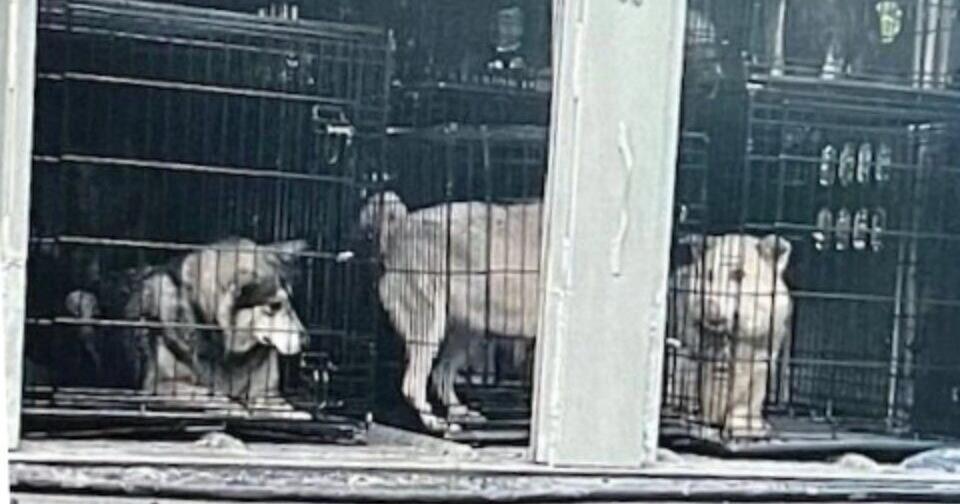shockedcanadian
Diamond Member
- Aug 6, 2012
- 37,921
- 36,448
- 2,905
Ontario operates as you would expect a jurisdiction in Russia to operate. The unaccountable evil that occurs here...

 www.thestar.com
www.thestar.com
On a rainy morning in September 2021, a small fleet of government vehicles rolled into a rural plot north of Barrie. As the provincial animal welfare inspectors dispersed on the property, one of them spoke to the owner, who ran a controversial sled dog business.
“We’re here to remove your dogs,” the inspector said.
The mushing company had previously been ordered to improve the living conditions for its sled dogs that lived outside. But it failed to do so, the inspector said, and now the province was there to remove more than 100 animals from distress.
On another property some 40 kilometres away, inspectors were seizing another 100 dogs owned by the same company.
The mass seizure was applauded by animal rights groups, and seen as a notch in the belt for Ontario’s newly minted animal welfare services. The arm of the provincial government had come into force 20 months earlier with the promise of creating a strong, transparent system to protect animals.
But the dogs started dying on the government’s watch.
As of March 2024, at least 31 of the sled dogs have died or been euthanized, and dozens more have become ill, according to records obtained by the Star.
The government would not say whether or how many more have died since then.
All the dogs were generally healthy at the time they were seized, according to records from Ontario’s animal welfare tribunal.
The Star has reviewed medical records, necropsy reports, and legal records, which document troubling details about the province’s care of the sled dogs. The dogs were improperly shipped in a livestock transport, where they were stacked on top of each other and deprived of a bathroom break for seven hours. They were then sent out to kennels across the province, where many of them were exposed to contagious disease outbreaks.
An adjudicator found the province failed to meet the basic standards of care for animals.
The dogs’ experience, critics say, reveals fundamental flaws in the provincial system that endangers the welfare of the animals it’s supposed to protect.

Ontario animal welfare agents seized dogs they said were in distress. Then the animals started to die on the government’s watch
The dogs’ experience, critics say, reveals flaws in the provincial system that endangers the welfare of the animals it’s supposed to protect.
On a rainy morning in September 2021, a small fleet of government vehicles rolled into a rural plot north of Barrie. As the provincial animal welfare inspectors dispersed on the property, one of them spoke to the owner, who ran a controversial sled dog business.
“We’re here to remove your dogs,” the inspector said.
The mushing company had previously been ordered to improve the living conditions for its sled dogs that lived outside. But it failed to do so, the inspector said, and now the province was there to remove more than 100 animals from distress.
On another property some 40 kilometres away, inspectors were seizing another 100 dogs owned by the same company.
The mass seizure was applauded by animal rights groups, and seen as a notch in the belt for Ontario’s newly minted animal welfare services. The arm of the provincial government had come into force 20 months earlier with the promise of creating a strong, transparent system to protect animals.
But the dogs started dying on the government’s watch.
As of March 2024, at least 31 of the sled dogs have died or been euthanized, and dozens more have become ill, according to records obtained by the Star.
The government would not say whether or how many more have died since then.
All the dogs were generally healthy at the time they were seized, according to records from Ontario’s animal welfare tribunal.
The Star has reviewed medical records, necropsy reports, and legal records, which document troubling details about the province’s care of the sled dogs. The dogs were improperly shipped in a livestock transport, where they were stacked on top of each other and deprived of a bathroom break for seven hours. They were then sent out to kennels across the province, where many of them were exposed to contagious disease outbreaks.
An adjudicator found the province failed to meet the basic standards of care for animals.
The dogs’ experience, critics say, reveals fundamental flaws in the provincial system that endangers the welfare of the animals it’s supposed to protect.